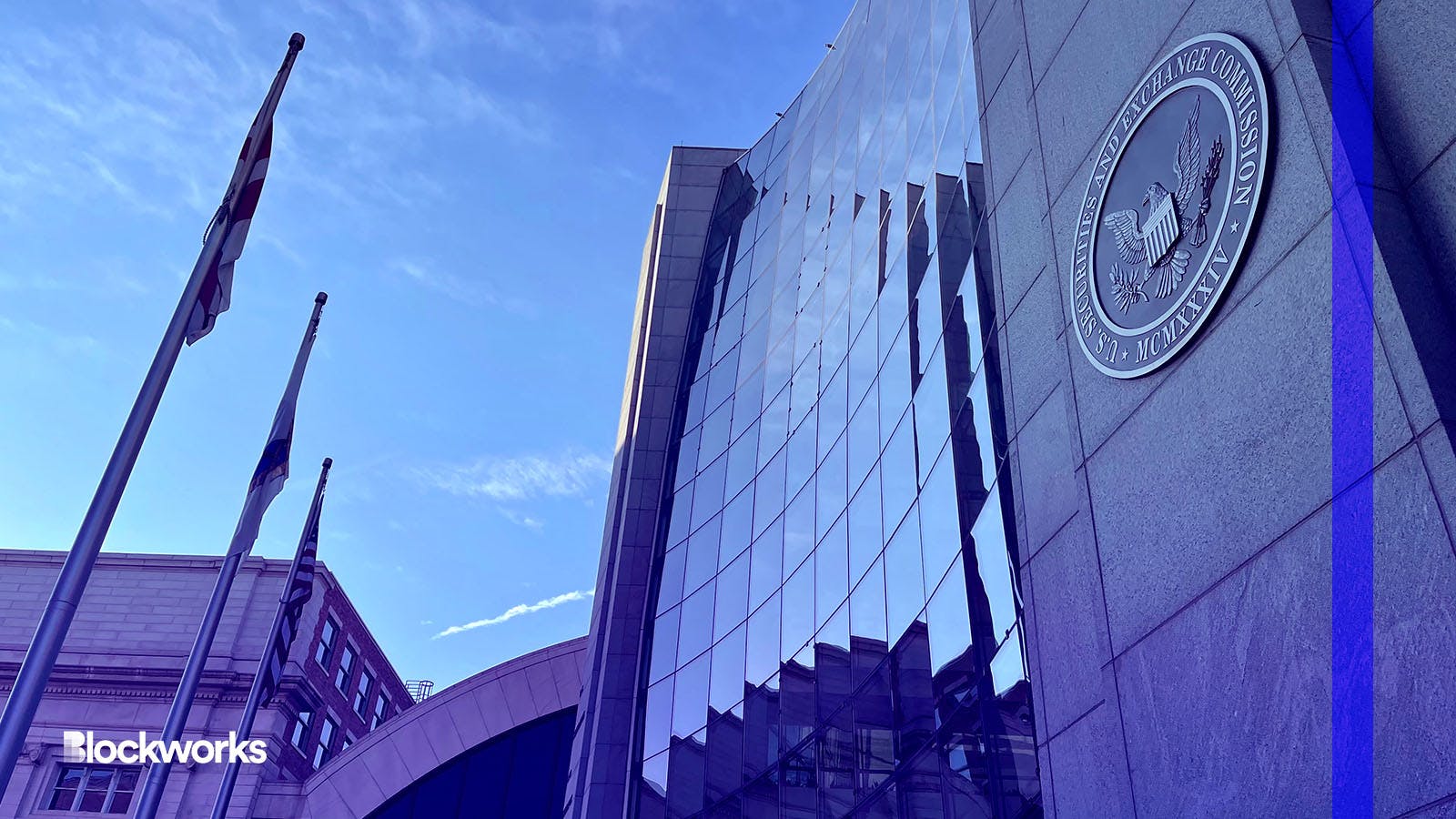Coinbase Hits Back At SEC Over Staking as a Service
“Staking services fail to meet Howey’s ‘reasonable expectation of profits’ element,” Coinbase’s legal chief Paul Grewal said

Source: Shutterstock / DCStockPhotography, modified by Blockworks
Cryptocurrency exchange Coinbase is defending its staking services after the US Securities and Exchange Commission (SEC) took issue with Kraken’s staking-as-a-service program.
“Coinbase’s staking services are not securities. We will happily defend this in court if needed,” CEO Brian Armstrong said in a tweet on Sunday, posting a blog that explains his rationale.
In the blog, Coinbase’s chief legal officer Paul Grewal writes that staking is not a security under the Securities Act, nor under the Howey Test.
“Trying to superimpose securities law onto a process like staking doesn’t help consumers at all and instead imposes unnecessarily aggressive mandates that will prevent US consumers from accessing basic crypto services and push users to offshore, unregulated platforms,” he wrote.
Staking is a process in which crypto holders participate in validating transactions on the blockchain. In return for this effort, the block’s proposer receives a reward paid in the blockchain’s native cryptoasset — for example, ether, in the case of Ethereum.
Read more: Will The SEC Staking Hammer Hit Validators and Protocols Next?
Kraken reached a settlement with the SEC last week, agreeing to pay $30 million for failing to register the offer and sale of its staking program, which was advertised as offering annual investment returns as high as 21%. Kraken didn’t admit to or deny the allegations.
Meanwhile, staking has contributed significantly to Coinbase’s revenue diversification efforts. According to Coinbase, staking does not constitute an investment of money and does not meet the Howey Test, which the SEC and US courts use to determine whether an asset is a security.
“When a customer asks us to stake some of their crypto, they aren’t giving up one thing to get something else — they own exactly the same thing they did before,” Grewal wrote.
“Staking customers retain full ownership of their assets at all times, as well as the right to ‘unstake’ those assets consistent with the underlying protocol,” he added.
Further, staking rewards are just payments for validation services to the blockchain, not a return on investment. They are determined by the blockchain protocol and would be the same whether the customer stakes on their own or through Coinbase, the blog states.
Last week, Armstrong said Coinbase has heard that the SEC wants to get rid of crypto staking in the US for retail customers, adding that he thought this would be a “terrible path” for the country. Some legal experts appear to agree with him.
“Staking is an essential feature of today’s programmable blockchains, particularly Ethereum,” said Bill Hughes, senior counsel and director of global regulatory matters at ConsenSys. “These world computers do not function without it. It is how these protocols secure and update network data. It is a marvel of computer science that is changing the world.”
Regulators should be open to dialogue about their concerns so that the community can consider and take steps to address them, according to Hughes.
“There are policymakers in many corners of the world who approach these topics with an open mind and a transparent process. They remind us that inquiries into staking need not be shadowy, cynical, or results-oriented. Their engagement should be applauded,” he added.
Others argue more broadly that cryptoassets are not securities, full stop, notwithstanding the SEC’s view.
Aside from Bitcoin and Ethereum, Jai Massari, a co-founder and chief legal office of Lightspark wrote in December, “it has been almost impossible to apply the SEC staff guidance in a way that provides agreed-on and repeatable answers.”
In a post to the Harvard Law School Forum on Corporate Governance, Massari, a visiting Lecturer at Berkeley Law, criticized the SEC’s approach.
“Market participants are expected to analyze a cryptoasset and its underlying project under many vague factors, some of which are based upon information not publicly available. The analysis is unwieldy at best and impossible at worst, particularly without guidance on which factors might outweigh others and with little clarification through rules or substantive litigation.”
Get the news in your inbox. Explore Blockworks newsletters:
- The Breakdown: Decoding crypto and the markets. Daily.
- 0xResearch: Alpha in your inbox. Think like an analyst.






